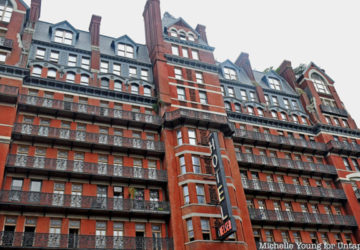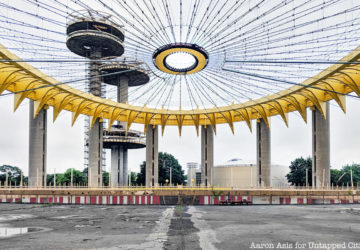Two years ago, beginner gardener Ron Finley planted some vegetables on the 10 by 150-foot strip of grass between the sidewalk and street of his south Los Angeles home. In an area lacking access to healthy food options, his neighbors began to stop by for free home-grown produce. For his offerings, Finely was issued a citation and then a warrant for his arrest by the City of Los Angeles. The garden was in violation of regulations set by the city, who owns these green “parkways” between private homes and public streets. Finley would either have to uproot the garden or apply for a $400 permit to grow plants within certain restrictions. He refused to do either and two years later, Finley and other “guerrilla gardeners” are still fighting to keep their sidewalk gardens while motions to legalize them remain immobilized by bureaucracy.
It seems contradictory, but homeowners are required to maintain the parkways in front of their houses even though those strips are part of the street–and not private property. If you trip on a planted eggplant, according to the LA Times (via Planitzen), you could sue the city. But while the city does have an interest in keeping parkways clear of potential obstructions, it also has an opportunity to use sidewalk gardens like Finley’s to address urgent community issues. Much of south Los Angeles is a food desert, areas with limited or nonexistent access to affordable, healthy foods (such as a lack of grocery stores). Most food deserts exist in low-income areas. Interestingly, one guerilla gardener points out that residents in neighboring wealthy towns are growing rosebushes and other plants on their parkways, most likely without permits as well.
Addressing food deserts on the macro level is a slow process. In 2008, the LA City Council imposed a one-year ban on opening new fast food restaurants within a certain radius of the city before making it permanent in 2011. At that time, LA also got its first supermarket in the area in a decade. While the city is moving toward addressing healthy eating, there’s still a need for wider access to food on the micro level. Parkway gardens, then, could offer a public-private collaboration specific to each neighborhood. The city owns thousands of miles of unused parkway and 26 square miles of vacant lots–all land that could be used to grow fruits and vegetables.
In 2011, city councilman Herb Wesson proposed a motion that would allow parkway vegetable gardens that meet certain public safety requirements. Details of the motion are still being ironed out today. In fall of 2010, the LA Board of Public Works revised the landscaping guideline to allow homeowners to plant certain vegetation without a permit, such as yarrow, chamomile, thyme and some types of strawberries. It’s unclear when the next revision will be, but if the guerilla gardeners have any say, these guidelines will include eggplant, tomato and lettuce too.
Get in touch with the author @catku.





